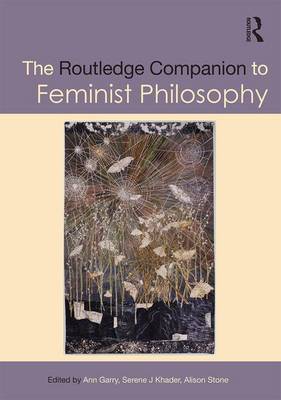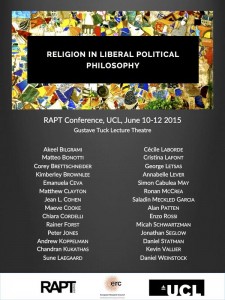-
The Limitations of Contract: Regulating Personal Relationships in the Marriage-Free State
 Many theorists defend relationship contracts. Some argue that enforceable relationship contracts should be available alongside existing or reformed state-recognised marriage, and available to either married or unmarried couples. Other theorists argue that relationship contracts are the best sort of legal regulation to replace marriage. It is this latter question that is the subject of this chapter. The chapter contrasts contract and directive models of regulation, and notes that contract appears more compatible with liberty than does directive. However this appearance is illusory since contracts can undermine liberty, directives can enhance liberty, and even a contract regime requires default directives. Moreover, there are various problems with the enforcement of relationship contracts. Specific performance is rarely appropriate in the relationship context. The alternative, fault-based compensatory alimony, risks causing injustice to vulnerable parties such as those who take on caring responsibilities (usually women) and children. Relational contract theory attempts to deal with some of these problems but has its own limitations. The chapter concludes that contract is not the best replacement for marriage.
Many theorists defend relationship contracts. Some argue that enforceable relationship contracts should be available alongside existing or reformed state-recognised marriage, and available to either married or unmarried couples. Other theorists argue that relationship contracts are the best sort of legal regulation to replace marriage. It is this latter question that is the subject of this chapter. The chapter contrasts contract and directive models of regulation, and notes that contract appears more compatible with liberty than does directive. However this appearance is illusory since contracts can undermine liberty, directives can enhance liberty, and even a contract regime requires default directives. Moreover, there are various problems with the enforcement of relationship contracts. Specific performance is rarely appropriate in the relationship context. The alternative, fault-based compensatory alimony, risks causing injustice to vulnerable parties such as those who take on caring responsibilities (usually women) and children. Relational contract theory attempts to deal with some of these problems but has its own limitations. The chapter concludes that contract is not the best replacement for marriage.Reviewers’ comments:
The book is “strenuously avant-garde”. The New York Times (5th April 2016).
Chambers’ chapter is “sobering and refreshing”. Notre Dame Philosophical Reviews (2nd May 2016).
Chambers, “one of the best-known advocates” of the claim that marriage should not be recognised by the state, contributes a “nuanced and lucid” chapter that is “among the most interesting contributions in the volume.” Hypatia (2017)
You can read more about the book here.
-
Feminism and Liberalism
 In Routledge Companion to Feminist Philosophy, edited by Serene Khader, Ann Gary, and Alison Stone (Routledge, 2017).
In Routledge Companion to Feminist Philosophy, edited by Serene Khader, Ann Gary, and Alison Stone (Routledge, 2017).For some feminists liberalism is little more than patriarchy in disguise; for others, it is the framework for securing justice. Feminism, like all other positions in political philosophy, is a range of views rather than a single determinate viewpoint. One aspect of this range is that feminism includes both academics and activists, for whom the term ‘liberalism’ can signify rather different things; after all, liberalism is not one single thing either.
In this chapter I start by considering feminist criticisms of liberalism. I discuss two aspects of feminist critique: first, academic feminist critiques of non-feminist liberal philosophy; second, activist feminist critiques of what is variously called “choice feminism”, “third-wave feminism”, or simply “liberal feminism”.
I then move to those feminists who endorse liberalism and argue that a suitably modified liberalism offers the best path to gender equality. This position, “feminist liberalism,” is mostly found in contemporary Anglo-American political philosophy. Feminist liberals understand liberalism as a commitment to substantive, demanding principles of justice based on freedom and equality. Included in this section are those feminist approaches that combine radical feminism’s insights about the limitations of individual choice with feminist liberalism’s commitment to autonomy, equality, and justice.
See more about the book here.
- all posts on feminism, all posts on social construction, all posts on the body and beauty, chapters, feminism, social construction, the body
Judith Butler’s Gender Trouble
In The Oxford Handbook of Classics in Contemporary Political Theory, edited by Jacob T. Levy (OUP, forthcoming).
This chapter provides a critical introduction to Judith Butler’s classic work Gender Trouble, including an analysis of the impact it has made on political theory.
The chapter is online first and you can read it here.
-
Becoming Oneself – The Problem of Gendered Complicity
 I responded to a paper by Nancy Bauer at this conference in Birkbeck in June 2015, organised by Prof Susan James. Details here.
I responded to a paper by Nancy Bauer at this conference in Birkbeck in June 2015, organised by Prof Susan James. Details here. -
BBC Radio 4 Broadcasting House
 I took part in a “remunerations panel”, discussing the philosophy behind how much people should be paid. The item was broadcast live on 7th June 2015. You can listen here – the item starts 14 minutes in.
I took part in a “remunerations panel”, discussing the philosophy behind how much people should be paid. The item was broadcast live on 7th June 2015. You can listen here – the item starts 14 minutes in. -
Religion and Political Theory conference
 I chaired a session of the Religion and Political Theory Conference at UCL in June 2015, organised by Prof Cecile Laborde. Details are here.
I chaired a session of the Religion and Political Theory Conference at UCL in June 2015, organised by Prof Cecile Laborde. Details are here. -
Political Theory and Impact Roundtable
 I was part of a roundtable on Political Theory and Impact in March 2015, run by the PSA and held at the House of Lords. The participants were:
I was part of a roundtable on Political Theory and Impact in March 2015, run by the PSA and held at the House of Lords. The participants were:Lord Parekh FBA (chair)
Prof Thom Brooks (Law, Durham)
Dr Clare Chambers (Philosophy, Cambridge)
Prof Elizabeth Frazer (Politics, Oxford)
Dr Emily McTernan (Political Science, UCL)Dr Martin O’Neill (Politics, York)
Prof Michael Otsuka (Philosophy, LSE)
Prof Albert Weale (Political Science, UCL)D
 etails are here.
etails are here.